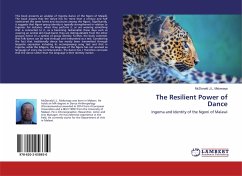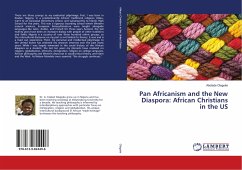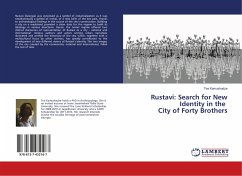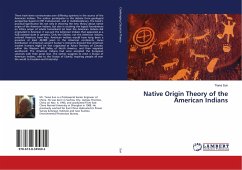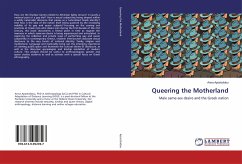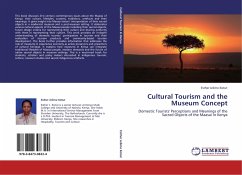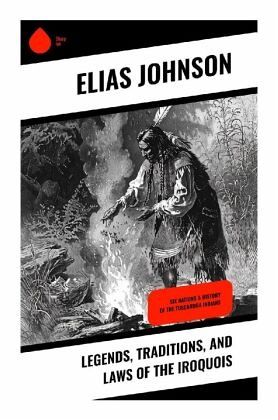
Legends, Traditions, and Laws of the Iroquois
Six Nations & History of the Tuscarora Indians
Versandkostenfrei!
Versandfertig in 6-10 Tagen
11,70 €
inkl. MwSt.
Weitere Ausgaben:

PAYBACK Punkte
0 °P sammeln!
In "Legends, Traditions, and Laws of the Iroquois," Elias Johnson presents a meticulous exploration of the cultural and legal frameworks of the Iroquois Confederacy. Johnson's narrative is infused with a blend of historical analysis and storytelling, employing an engaging prose style that reflects the oral traditions of the Iroquois themselves. He deftly weaves together folklore, traditional wisdom, and legal precepts, placing these elements within the broader context of Indigenous legal theory and cultural resilience. The work not only serves as a repository of Iroquois heritage but also stan...
In "Legends, Traditions, and Laws of the Iroquois," Elias Johnson presents a meticulous exploration of the cultural and legal frameworks of the Iroquois Confederacy. Johnson's narrative is infused with a blend of historical analysis and storytelling, employing an engaging prose style that reflects the oral traditions of the Iroquois themselves. He deftly weaves together folklore, traditional wisdom, and legal precepts, placing these elements within the broader context of Indigenous legal theory and cultural resilience. The work not only serves as a repository of Iroquois heritage but also stands as a critical examination of the intersection between indigenous law and colonial legal frameworks. Elias Johnson, an esteemed scholar in Native American studies, draws from his rich background in anthropology and law to illuminate the intricacies of Iroquois society. Having spent years engaging with Iroquois communities, Johnson possesses a profound understanding of their traditions and struggles. His scholarly pursuits have long emphasized the importance of indigenous voices in retelling their own histories, making this work not just an academic endeavor but a passionate homage to Iroquois culture. Readers interested in indigenous studies, legal anthropology, or cultural preservation will find "Legends, Traditions, and Laws of the Iroquois" an indispensable addition to their libraries. Johnson's insightful analysis and respectful engagement with Iroquois knowledge systems invite a deeper appreciation of indigenous scholarship, encouraging readers to consider the implications of these traditions in contemporary legal discourse.




